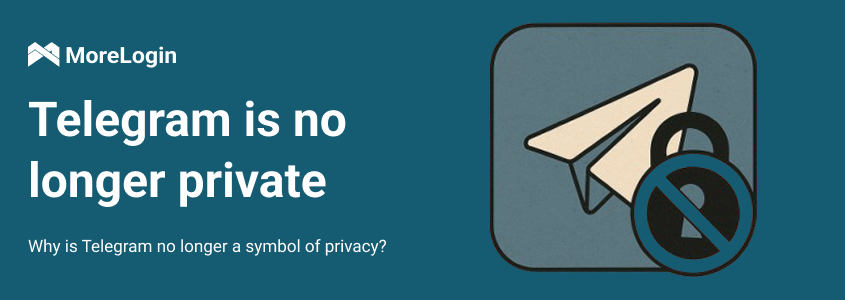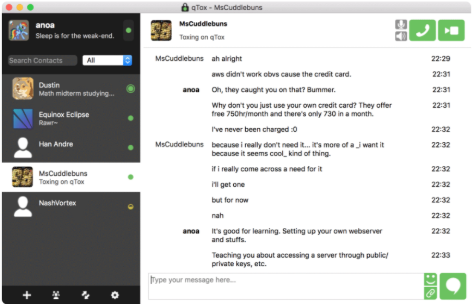
- Product

- Pricing
- Affiliate Program
- Use Cases
- Resource


Telegram was once seen as the go-to messenger for those who valued freedom and secure communication. However, the platform has increasingly strayed from this image. Both political controversies and technical limitations have contributed to this shift.
In early 2025, news spread widely that investments of $100,000 or more in the TON blockchain could grant investors a 10-year UAE residency visa. It was presented as an official government program, but Emirati authorities quickly refuted this claim. The TON Foundation was forced to issue a correction, but the damage to investor trust had been done. Given the close ties between TON, Telegram, and founder Pavel Durov, the incident also damaged Telegram’s own reputation.
In December 2024, Telegram announced a partnership with Elon Musk’s AI platform, Grok. The idea was to integrate Grok into Telegram bots to enhance user chats with intelligent processing features. However, by Q1 of 2025, the deal had clearly fallen through. Industry insiders pointed to disputes over data access and distribution control. The breakdown raised questions about Telegram’s ability to form equal partnerships with major tech innovators.
Telegram is increasingly associated with the spread of false or unverified information. From political elections to PR campaigns run by private groups, Telegram has become a hub for unmoderated content. In some countries, government bodies have begun reviewing the platform's impact on public discourse. Human rights organizations have also criticized Telegram for its selective moderation and weak content controls.
True end-to-end encryption is only available in Telegram’s “secret chats,” which are limited to mobile devices, do not sync across platforms, and are often ignored by users due to their inconvenience. All other conversations—including group chats, channels, and regular private messages—are stored and transmitted using client-server/server-client encryption. This structure does not provide real end-to-end protection.
The bulk of all Telegram communication is stored on the platform’s servers. This means messages can technically be accessed, even if Telegram employs internal security layers. The company claims data is split into fragments, encrypted, and distributed across data centers in various jurisdictions. However, there is no third-party audit to verify these practices.
Telegram’s privacy policy states that in “exceptional cases,” it may share users’ IP addresses and phone numbers upon a valid court order. The company has acknowledged at least one such case publicly, setting a precedent for future data sharing. This challenges Telegram’s claims of resistance to state pressure.
While Telegram has open-sourced its mobile and desktop apps, its server-side code is not publicly available. This makes it impossible to independently verify Telegram’s claims about encryption, storage, and data handling. In contrast, platforms like Signal and Matrix promote transparency by making their entire infrastructure open source.
Creating a Telegram account requires a phone number, which leaves a trace and makes users vulnerable to SIM-swap attacks or data leaks. Telegram has introduced blockchain-based anonymous numbers via TON, but purchasing them still requires access to a crypto wallet, making the process far from truly anonymous.
All of these factors make Telegram a powerful and scalable messaging app—but not a secure tool for private or anonymous communication.
Telegram is no longer a trusted option among those who need true anonymity and privacy. Communities operating in the darknet, digital underground groups, and cybersecurity professionals have turned to platforms that prioritize decentralization, infrastructure control, and freedom from corporate oversight.
This open-source protocol supports end-to-end encryption through OTR or OMEMO. It can be used with public servers or self-hosted instances, including ones compatible with the Tor network. No phone number is required for registration, and the platform supports offline messaging and customizable configurations for different threat levels.

Tox is a fully decentralized, peer-to-peer messenger. All communication is encrypted by default, there’s no central infrastructure, and metadata collection is impossible. It doesn’t rely on DNS. However, it does have limitations: poor mobile support, issues with NAT environments, and weak group chat functionality.

Matrix is another open-source platform, often used with the Element client. Users can connect to public servers or host their own. It supports encryption (Olm/Megolm), one-on-one and group chats, calls, bots, and custom integrations. It’s a robust option for distributed teams and users needing high reliability without reliance on external services.
Some highly private users rely on minimalist web interfaces hosted on .onion domains. These platforms avoid JavaScript, analytics, or external code, offering maximum isolation. Such tools are often used by anonymous operators during cyber incidents. For even more privacy, tools like MoreLogin anti-detect browsers allow independent sessions with unique fingerprints to prevent deanonymization.
Telegram remains a widely-used and convenient platform, packed with features and a slick user interface. But if your priority is true privacy—not just stickers and ease of use—Telegram no longer qualifies as a secure option. There are better alternatives out there, and they’re objectively more trustworthy.